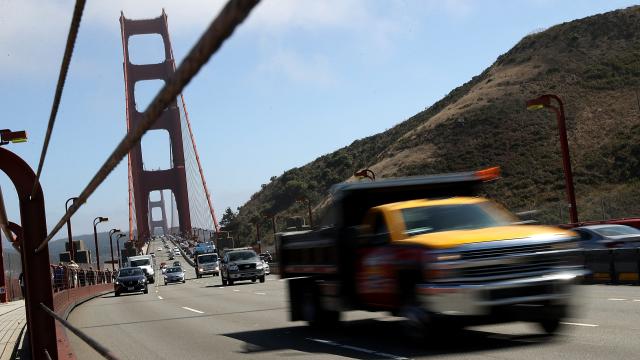San Francisco on Tuesday became the first city in America to ban the use of facial recognition technology by police and other government agencies.
The measure passed in an 8-1 vote by San Francisco’s board of supervisors. The debate over the bill is essentially over. California law requires two votes for an ordinance to go into effect, and the second vote is at this point a formality.
The “Stop Secret Surveillance Ordinance,” the bill that passed on Tuesday, has two main dimensions. First, it bans the city government’s use of face recognition. Next, the bill implements strict oversight for all surveillance tools used by the city. It requires public notice and legislative approval for the purchase of new surveillance tools and audits on existing surveillance tech — like licence place readers — used by the city.
Police and Stop Crime SF, a local crime-prevention group, pushed against the bill. But ever since its introduction earlier this year, it has received a national spotlight and support from groups like the Oakland Privacy, the ACLU, Electronic Frontier Foundation, and the Council on American-Islamic Relations.
The facial recognition ban is a first for the United States. The second facet of the law, however, has already been passed in six other Northern California cities.
“We can have good security without a security state and we can have good policing without a police state,” Supervisor Aaron Peskin, the lawmaker who introduced the bill, said at today’s hearing, a line he’s hammered home over the last few months. “The thrust of this legislation is not to get rid of surveillance technology. It’s to let the government and the public know how that technology is used.”
Brian Hofer, a local privacy activist and the executive director of Secure Justice, told Gizmodo that accountability will ultimately benefit the entire city.
“Like the other six Bay Area jurisdictions, San Francisco will benefit from greater public input and transparency into the decision-making process around potentially invasive equipment,” Hofer said. “They’ll also find out what equipment is effective and be better able to allocate scarce taxpayer dollars, because we’ll have real data on its use.”
A recent ACLU poll showed 75 per cent of voters in the Bay Area approved of requiring a public debate and city vote before the acquisition and use of surveillance technology.
Face recognition technology is rapidly spreading around the world and around the country despite criticism over privacy, bias and accountability concerns.
The majority of American adults are in police facial recognition database, according to a Georgetown Law study. An MIT study found that Rekognition, Amazon’s popular facial recognition product, struggles to identify the faces of women and people of colour. A study by the ACLU in 2018 found Amazon Rekognition falsely matched 28 members of Congress to mugshot photos, and that results disproportionately negatively impacted people of colour.
“Oakland and Berkeley are following San Francisco’s lead by also considering prohibiting government use of facial surveillance technology,” Hofer told Gizmodo. “Other states and cities outside of California are considering similar rules. We expect this movement to grow as more people become educated about the risks inherent from use of this technology.”
Last year, Microsoft president Brad Smith came out in favour of federal regulation of face recognition.
“We live in a nation of laws, and the government needs to play an important role in regulating facial recognition technology,” Smith wrote. “As a general principle, it seems more sensible to ask an elected government to regulate companies than to ask unelected companies to regulate such a government.”
